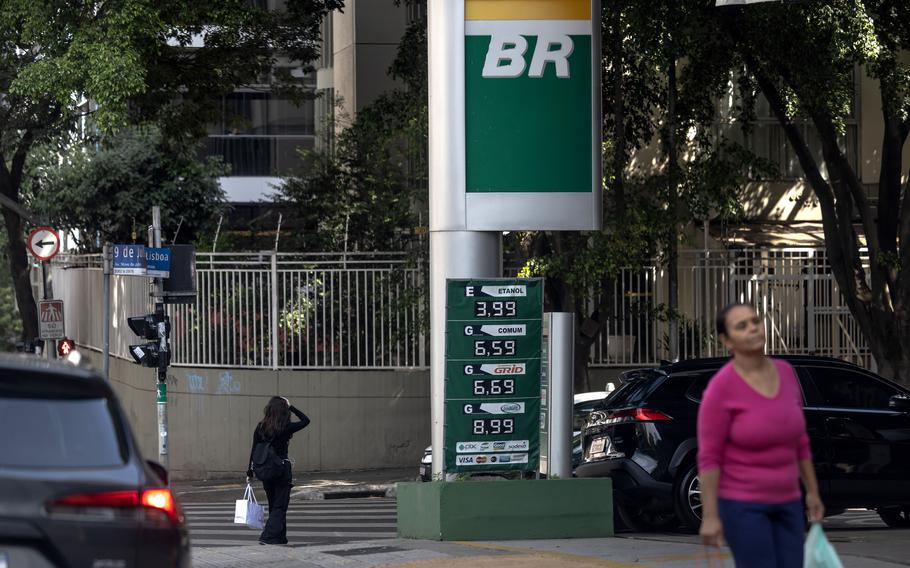Americas
Brazil’s annual inflation tops all forecasts, supporting high interest rates
Bloomberg July 25, 2024

In July, Petroleo Brasileiro SA jacked up gasoline prices for the fist time in nearly a year. (Jonne Roriz/Bloomberg)
Brazil’s annual inflation accelerated more than expected by all analysts in early July, supporting traders’ bets the central bank will have to hike borrowing costs later this year after holding them steady next week.
Official data released Thursday showed consumer prices increased 4.45% from a year earlier, above the 4.37% median estimate from analysts in a Bloomberg survey. Monthly inflation stood at 0.3%.
Policymakers are expected to maintain borrowing costs in double-digits for the foreseeable future as inflation forecasts run above the 3% target. High interest rates have so far failed to significantly dampen growth, and the job market remains tight. Complicating matters further, investors are fretting about President Luiz Inacio Lula da Silva’s spending ambitions.
Swap rates, which indicate market sentiment toward monetary policy, jumped in Thursday morning trading following the faster-than-expected inflation reading. Longer contracts rose more than 10 basis points.
“The data is way worse than expected when looking within its components,” said Leonardo Costa, an economist at investment firm Asa. “It reflects core measures that are becoming harder to tame.”
The prospects of a return to monetary easing, which the central bank paused in June, have been further diminished for weeks now - with the more pessimistic market-watchers betting on the potential need for rate hikes.
Fuel leaped by 1.39% on the month, after Brazil’s state-controlled oil company, Petroleo Brasileiro SA, jacked up gasoline prices earlier in July for the fist time in nearly a year.
Transportation jumped 1.12% on the month, with airline tickets surging 19.21%. Food and beverages costs, which had been closely watched by central bankers, dropped 0.44%.
Consumer price increases could edge higher in coming months after the value of the South American nation’s currency, the real, slid as the government struggles to enact budget cuts to meet its fiscal targets. A weaker currency fans inflationary pressures by raising the costs of imports.
The real “will put the bank on high alert,” wrote Andres Abadia, chief Latin America economist for Pantheon Macroeconomics. Still, he bets rate cuts will resume in September as underlying inflation remains “under control” and supply-related shocks pass.
In a separate report published early Thursday, the central bank reported that foreign direct investment hit nearly $6.3 billion in June, roughly double the $3.3 billion median estimate from analysts in a Bloomberg survey. With assistance from Rafael Gayol.